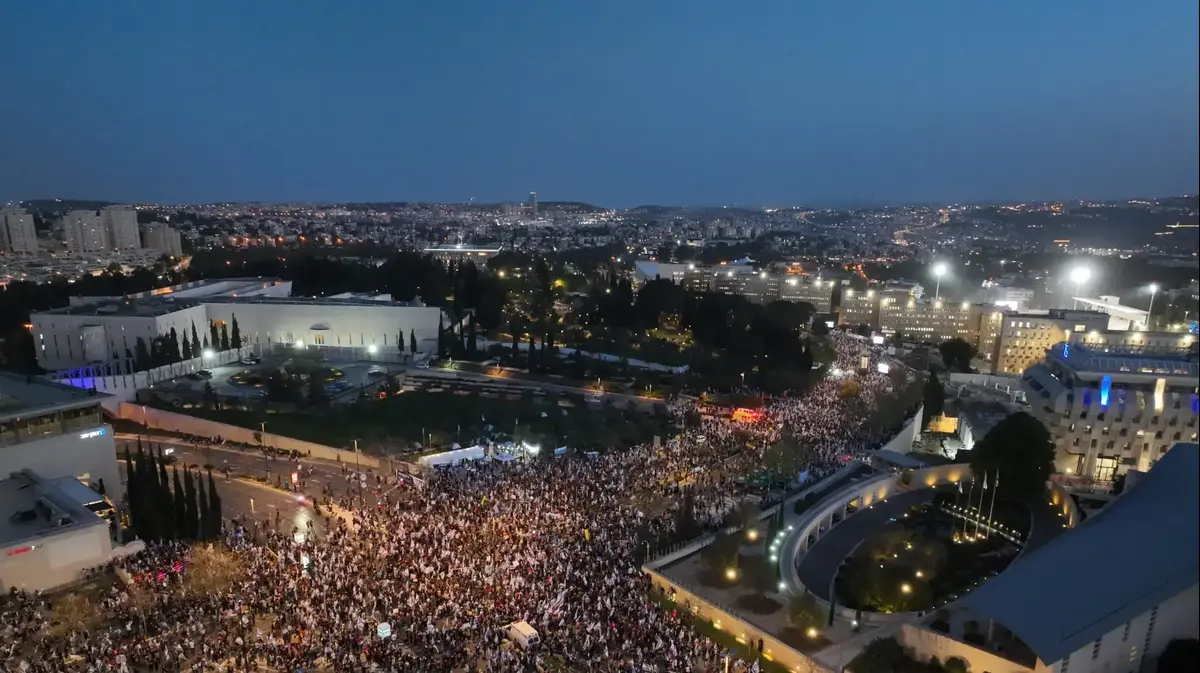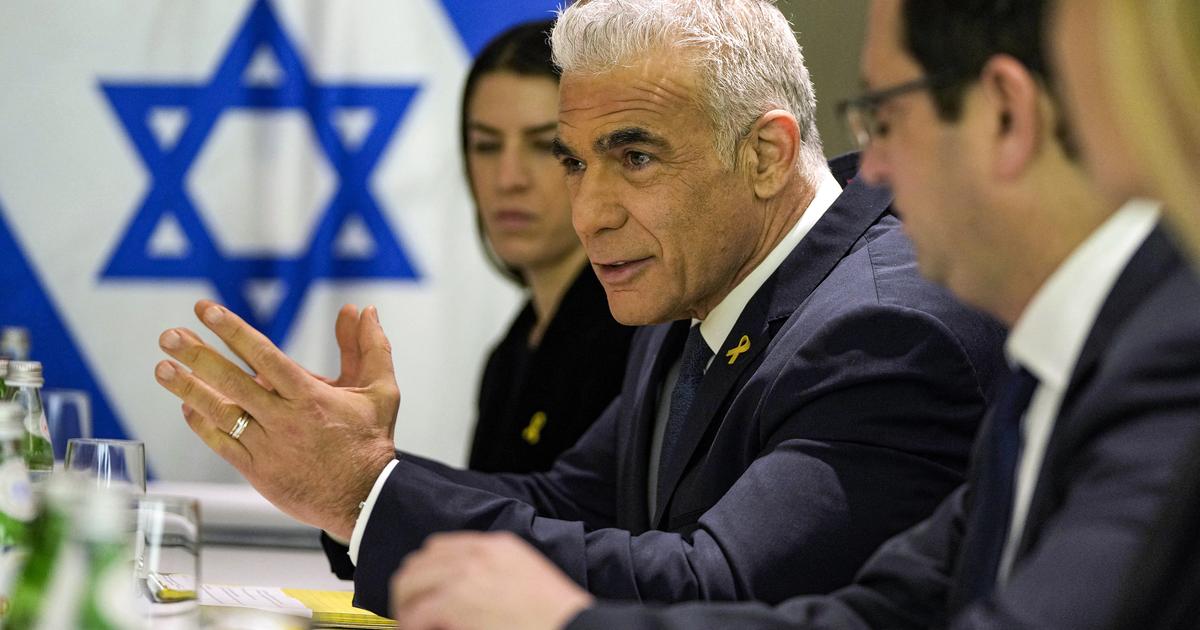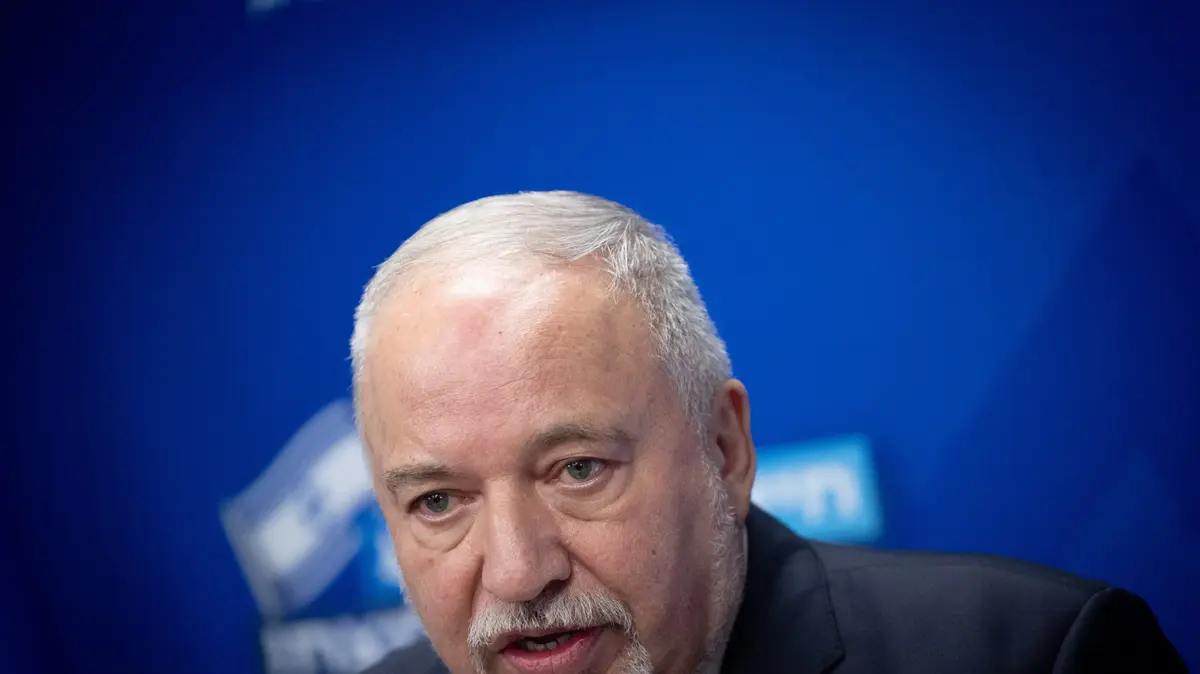Israelis resignedly prepare for the fifth elections in just over three years.
The self-dissolution vote of the Knesset (Parliament) will take place this Monday, 12 months after the formation of a government supported by the most diverse coalition in the history of the Jewish State: eight parties ranging from the nationalist right to the left. pacifist, through the center and labour.
And with the unique precedent of having incorporated a political force from the Arab minority (20% of the country's population).
The country is divided into two irreconcilable halves, according to the voting intention polls, before the automatic call for new legislative elections for this fall.
Conservative Benjamin Netanyahu, the 72-year-old leader who has governed Israel for the longest time,
The nationalist Naftali Bennett has said goodbye in the Council of Ministers this Sunday, a working day in Israel, of the members of the Executive of broad alliance with a praise to the "formidable achievements" of his ephemeral mandate.
After the dissolution of the Knesset, the still head of government must cede the post to Foreign Minister Lapid, leader of the party with the most seats in the coalition, in accordance with the rotation agreements in office that both signed in June of the year past.
For the first time in a decade, Netanyahu will not face an election as prime minister.
Many wonder in Israel why an Executive has collapsed that had returned an apparent normality to public life after 12 years of polarization under Netanyahu's mandates.
Experts and analysts point to two central causes.
The heterogeneous alliance ignored the occupation of the Palestinian territories - the issue that most divides citizens - to safeguard its internal cohesion, on one side.
Furthermore, last spring's attacks, which claimed a dozen lives in Israel, shattered voter confidence in the so-called Government of Change, led by Bennett.
“It was a very unstable government, without common ideological ground.
It was clear that any security problem would put him in danger, ”argues Nadad Eyal, a columnist for the
Yediot Ahronot newspaper,
the one with the largest circulation in Israel.
"The main catalyst for his collapse was the wave of terrorist attacks," he says, "and Bennett's right-wing party has not withstood the pressure of his voters."
The opposition, led by Netanyahu's Likud together with ultra-Orthodox Jewish parties and the extreme right, took advantage of the wave of attacks to torpedo the waterline of a Cabinet that it branded as a "traitor" and associated with the "Islamist movement" because of its the presence of the Arab Raam party in the coalition.
Jewish society was surprised by the presence of Arabs with Israeli nationality among the murderers of their fellow citizens in the name of the Islamic State in various towns in the country.
"Mansur Abbas, leader of Raam, has shown himself to be a pragmatic leader and has proved for the first time that there can be a Jewish-Arab coalition," Eyal points out.
He also recalls that Netanyahu had offered the Islamist Abbas to join his government before he was vetoed by the former conservative president's far-right allies.
His analysis coincides with the criteria of the historian Meir Margalit: "Abbas has shown that it is feasible to have an Arab party politically and a taboo has been broken in Israel."
In 1992, the Arab parties voted in favor of Isaac Rabin as Labor Prime Minister so that he would agree to the Oslo Agreements (partial self-government of the West Bank and Gaza) with the Palestinians, but without joining their coalition.
"But the disparities between the right and left components of the Bennett Cabinet were of such magnitude that it was impossible to bring the ship to fruition," says this university professor.
After the expected resignation of Bennett and the appointment of Lapid as acting head of government, polls of voting intentions confirm that the tie between blocs has split the Israeli electorate into two halves.
The nationalist and religious right led by Netanyahu adds 57 deputies in the survey published this weekend by the
Maariv
newspaper .
The alliance of forces from the outgoing coalition, led this time by the reformist Lapid, also has 57 parliamentarians.
The tables are only broken on the political checkerboard of the Knesset (120 seats) with the six legislators assigned in the poll to the Joint List, an electoral coalition of Arab nationalist and leftist parties.
More information
The Israeli problem is called Netanyahu
"The great Jewish majority in Israel is not interested in giving political participation to the Arab parties in government," says electoral analyst Daniel Kupervaser.
“If their parliamentary representation continues at the low level of the last legislative ones (10 seats in 2021), they will only count as the last possible alternative,” he reasons, “but if the political forces of the Arab population organize themselves, they can obtain up to 20 deputies, a situation that would require a different relationship with the Zionist parties.”
A high electoral participation in the communities of the Israeli Arab minority is the main stumbling block that emerges in the journey of Netanyahu's return to power.
Defeat in the vote on the settlements
Nearing a year of formation, the broad-coalition government teetered on its biggest fracture two weeks ago, after losing a key parliamentary vote on Jewish settlements in the West Bank.
His attempt to extend the validity of the "provisional" legislation that extends since 1967 the Israeli civil rights to 450,000 settlers settled in occupied territory failed in the Knesset.
Two deputies from the majority opposed it and another four were absent from the Chamber, aggravating the decomposition of the alliance.
Bennett threw in the towel last Monday after realizing that he was not going to be able to ratify the legislation for the settlements before July 1.
As of that date, Israelis settled in the West Bank could be subjected to martial law, as were the 2.5 million Palestinians living under military occupation.
If the Knesset is not dissolved, a decision that entails the automatic extension of all the rules until the constitution of a new Executive, they ran the risk of losing almost all their rights, such as Social Security or tax benefits.
The legislation that allows settlers to live as if they were in Israel, outside the occupation regime that has just turned 55 years old, is at the base of the accusations of Israeli and international NGOs against an
apartheid system
imposed on Palestinians in the West Bank.
Bennett recognized this weekend, in the last interviews as president that he has granted to the Hebrew media, that he had neglected control over his own party, Yamina (religious ultranationalist).
Three of its seven deputies either joined Netanyahu or broke the coalition's voting discipline.
But the outgoing prime minister, who has not yet revealed whether he is going to withdraw from political activity, has warned above all in his statements about the danger of drifting towards a "civil conflict" in Israel due to Netanyahu's electoral strategy, which he calls "the most divisive Israel has faced in many years."
Two months ago the Shin Bet, internal secret service,
Former Israeli Prime Minister Benjamin Netanyahu in Parliament on Wednesday. GIL COHEN-MAGEN (AFP)
Last minute maneuvers by the opposition
Despite last-minute maneuvers by Netanyahu and his allies to forge an alternative majority in the Knesset, to present a motion of no confidence and take control of the government before Parliament is dissolved, the calling of the fifth elections since April of 2019 is presented as inevitable, in the opinion of political analysts.
Has Israel changed after a year of government without the presence of Netanyahu?
It is yet to be seen at the polls.
In addition to the participation for the first time of an Arab party in a government coalition, the demographic observer Kupervaser considers the news that the Israelis have been able to assist the management of a heteroclite team of ministers that has been guided "by an order of public and not personal priorities".
“Make no mistake.
If Netanyahu wins 61 seats (absolute majority in the Knesset), his sole objective will be to control the Supreme Court (by appointing non-independent judges) and pass legislation that guarantees him impunity (in his trial for corruption) as long as he is the first minister”, sums up columnist Sima Kadmon in
Yediot Ahronot
, the threat that liberal and progressive sectors consider to weigh heavily on democracy in Israel.
For veteran tribune Netanyahu, the fall elections will likely be his last chance to return to Balfour, the Jerusalem street where the prime minister's official residence is located.
Lapid intends to settle there in a few days, perhaps the rockiest rival to fight at the polls since Labor Simón Peres, whom he defeated on points in 1996, and Ehud Barak, who knocked him out three years later to dispatch him for a decade to the desert of opposition.
Follow all the international information on
and
, or in
our weekly newsletter
.

/cloudfront-eu-central-1.images.arcpublishing.com/prisa/EUVKNEDW7LKZ4LAOZIS6URWL6Y.jpg)







